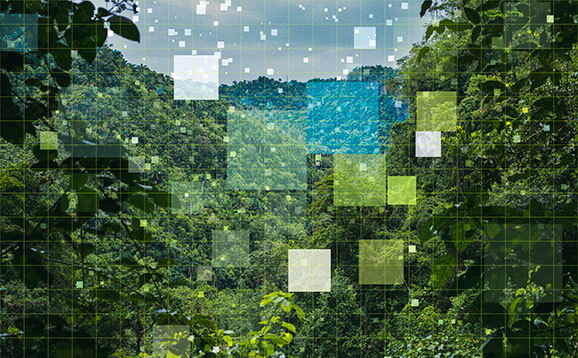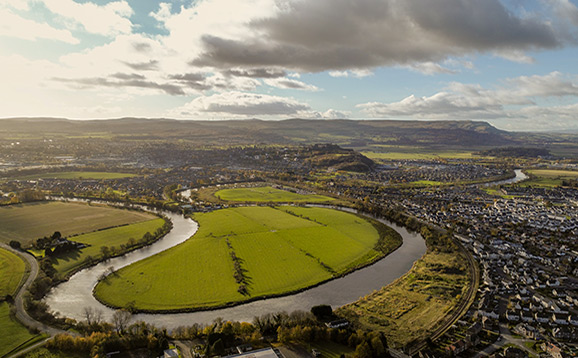About our biological and environmental sciences research
Our research focuses on tackling global challenges through multi-disciplinary research with a cohesive and distinctive theme of society-environment interactions.
- Our interdisciplinary approach joins research threads interconnecting major challenges in water, carbon, ecological and societal systems.
- In addition to fundamental and blue-skies research, we also apply state of the art environmental technologies and research to engage with policymakers, environmental agencies, non-governmental organisations, industrial partners and local communities.
- Our work on climate and biodiversity emergency research directly addresses the UN Sustainable Development Goals of Zero Hunger, Peace and Justice, No Poverty, Clean Water and Sanitation, Sustainable Cities and Communities, Climate Action, Life Below Water and Life on Land.
- We put the environment at the heart of inclusive and sustainable growth.
Our research philosophy integrates fundamental and applied research and extends beyond traditional biological and environmental sciences by emphasising society-environment interactions.
For example, we recently co-founded the Scottish International Environment Centre (SIEC) based at Stirling and funded by UK and Scottish Governments. The SIEC promises new evidence-based approaches to lead a post- Covid19 green recovery, aligning and integrating business, industry and academic focus on the transition to a net zero carbon economy.
Find out more about our research groups and PhD opportunities.

Our research highlights
Our carbon cycling research in the Arctic, including the Permafrost Carbon Feedback is directly contributing to UK and international policy.
We lead an ambitious research program on developing new biocontrol systems using an evolutionary approach for fighting serious agricultural global pests.
We conduct leading-edge research to understand the public health risks and environmental impacts of plastics in developing African countries, as well as parallel independent projects on this topic in SE Asia.
We study how renewable energy hydropower projects and dam construction impact biodiversity, local ecosystems and local people’s livelihoods.
We have a strong tradition in studies of ecological restoration, including woodlands and freshwater habitats, that use natural experiments and species reintroductions to assess biodiversity responses to restoration efforts.
In the African tropics, we have partnered with the Gabonese government for the past four decades to co-produce the longest continuous datasets in the region on rainforest function, carbon sequestration and responses to climate change.
We study how bee pollinators have co-evolved with flowering plants and the response of natural and agricultural systems to changes in the availability of specialised pollinators.
We are developing environmental management tools such as quantitative PCR detection of Escherichia coli in contaminated farmland soils.
Our research is underpinning science-based policy on peatland restoration and forest management for soil carbon sequestration with the Forestry Commission.
In collaboration with Stirling colleagues in History and Education and supported by the Strathmartine Trust, ESRC, Royal Society and Scottish Wildlife Trust, our work with schools in remote or in attainment-challenged locations is widely recognised as exemplary. We translate and test citizen science approaches to learning into the school curriculum.
We have excellent inter-disciplinary research collaborations where we integrate our environmental science with social sciences, humanities, and engineering.
We are developing new approaches and tools to resolve conflicts and trade-offs between biodiversity and food security.
We work with Institute of Aquaculture colleagues to improve sustainable management of shellfish fisheries in the face of threats from both ocean acidification and marine invasive species.
A global vision grounded in local and international partnerships
Our research is essentially collaborative and operates at both local and international scales with a diversity of partners across academic, government and private sectors. We operate across the globe, from the Arctic to the Tropics (Africa, Southeast Asia, the Americas), working in the terrestrial, freshwater and marine realms.
A recent example of our partnerships across sectors includes forestLAB, a new initiative exploring how to produce carbon positive, biodiversity-rich, socially and economically sustainable landscapes. forestLAB investigates how forestry, agri-business, tourism, transport and subsistence livelihoods can co-exist without net carbon losses, promoting social and economic development and protecting biodiversity. A flagship project covering 7,000km2 in southern Gabon hosts forestLAB’s highly innovative research and implements its findings to test the performance of socially and environmentally sound best practices in real-world scenarios.
We work closely with the newly established Scottish International Environment Centre (SIEC) co-founded by BES researchers, and supported by a £17 million investment from the Scottish Government and £5 million from the UK government, and aim to help delivering transformational change in society through the protection and enhancement of our natural resources.
Together with business partners we have also launched the exciting Forth ERA program to monitor regional green recovery that supports regional social and economic success grounded on healthy ecosystems.
Our researchers maintain a strong and growing network of international partners and distinguish themselves as international leaders in their field.
Our research is guided by the principle of building inclusive, open, collaborative, and safe working environments that seek and highly value equality, diversity and inclusion.
Find out more
Scottish International Environment Centre
Scotland’s International Environment Centre (SIEC) is a pioneering collaboration that will create an ‘innovation community’ in the Forth Valley.
forestLAB
forestLAB is a new research hub created to explore climate-smart, conservation-led solutions for sustainable development in central Africa.
Forth Environmental Resilience Array
Forth ERA will provide the region with the world’s first green recovery platform, creating a regional living laboratory across the Forth Valley.



